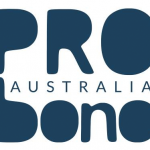Investing In Child-Centred Approaches To End Family Violence

12 July 2017 at 5:02 pm
The Family-Centred Approaches to Ending Family Violence conference in Melbourne on 29-30 August brings together insights and strategies from government agencies, service providers, peak bodies and thought leaders from across Australia.
In Australia, 25 per cent of all children have been exposed to domestic violence says Criterion Conferences – organisers of this Melbourne event.
That figure is horrifying, particularly when you start to understand the impacts on the children themselves and on our community as a whole. Exposure to violence can trigger ongoing fear, grief and self-blame. It can lead to detachment from others and disengagement from learning and socialisation. Witnessing violence in the home can leave children at risk of intergenerational trauma and even lead to the development of similar coercive or abusive behaviours in their own relationships in the future.
However, children can also be the key motivator for change and healing when working both with perpetrators or victims. In response to last year’s Royal Commission into Family Violence, the Victorian government is investing an unprecedented amount into ending violence, with a large portion of funding going towards child-centred services and pilot projects.
One of these initiatives is VanGo – a mobile therapy van breaking down the barriers to access and bringing child-centred therapies to families in need. This van is a joint initiative between WRISC Family Services and the Shire of Moorabool – also highlighting how project partnerships and community collaboration can have big impacts in this area of work.
South Australia was one of the first states to share community skills and knowledge to target family violence by bringing together staff from SA Police, the Department for Education and Child Development, SA Health, Housing SA and the Department for Correctional Services. Together they form ‘MAPS’ – a Multi Agency Protection Service. Aligning data from different organisations can help piece together a bigger picture and ensure a coordinated response to at-risk women and children.
Children in particular are too often the silent, unacknowledged victims of family violence and because of this their cases fall through the cracks. However, what agency partnerships like MAPS or Victoria’s newly announced Central Information Point can do is link datasets such as school absenteeism with health centre check-ins or community family violence services accessed by their parents. By overlaying this data, children who are caught up in violent home environments can be identified much earlier and, ideally, intervention can take place before police are involved.
Following the outcomes of the Royal Commission into Family Violence, Victoria’s Principal Commissioner for Children and Young People Liana Buchanan said that: “there was a lack of dedicated specialist services addressing the needs of children, contributing to a systemic failure to recognise children as victims in their own right”.
In the last few months, this has prompted greater public attention on the need for research, innovation and funding into more therapeutic, trauma-informed and family-focused services for children.Taking a child-centred approach to ending family violence does not sideline the needs and experiences of mothers who are victims – in fact, it strengthens the likelihood of long-term healing and the success of rebuilding healthy family relationships for all affected individuals.
The Family-Centred Approaches to Ending Family Violence conference is running across 29th – 30th August 2017 at the Rendezvous Hotel Melbourne.
To find out more please visit: http://go.criterionconferences.com/efv-pb
Quote CC*PB when registering and save an additional $100 off your two day conference pass.
(Author: Lauren Perry, Senior Conference Producer, Criterion Conferences)








